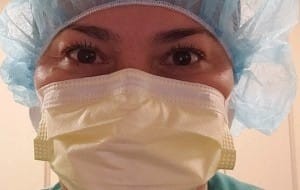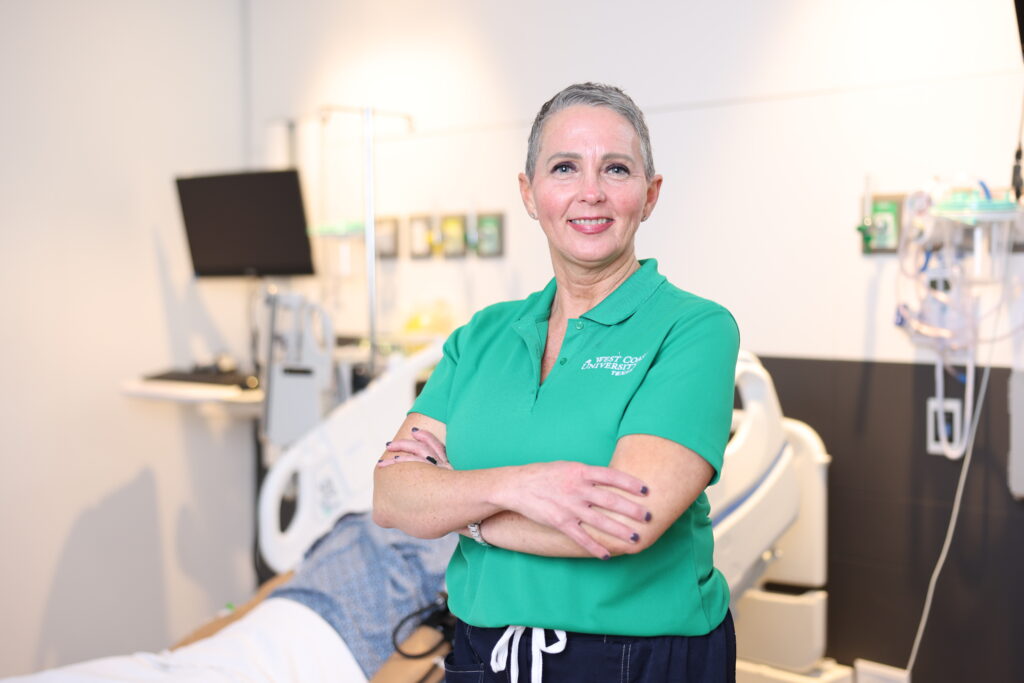Nurses put their heart and soul into each patient. But for one special person under her watch, Sandra Marti took it a step further.
A 2015 graduate of West Coast University-Dallas, Marti’s family moved from Mexico to Corpus Christi, Texas when she was a child. One of her earliest memories of the border town is riding in the small bus that took her grandmother to receive dialysis treatment several times a week. Once at the clinic, Marti said, she would watch what the nurses did and how they interacted with her grandmother and the other patients in the dialysis unit.
World Kidney Day
World Kidney Day is a global campaign aimed at raising awareness of the importance of our kidneys.
All across the globe many hundred events take place from public screenings in Argentina to Zumba marathons in Malaysia to create awareness about preventive behaviors, risk factors and how to live with a kidney disease.
World Kidney Day is a joint initiative of the International Society of Nephrology (ISN) and the International Federation of Kidney Foundations (IFKF).
“It inspired me a little bit about caring for people,” she said. “I just didn’t know that’s what I wanted to do at the time.”
Ready for take off
Before becoming a nurse, Marti worked for a major commercial airline at the airport. She loved all the travel perks of her job and she also met her future husband while at the airport. Marti was working her way through the company’s business management program when the 9/11 terrorist attack occurred in 2001. Within weeks, she and tens of thousands of other airlines workers were laid off.
“It put the childish dream of traveling around the world into perspective like, ‘Holy smokes, I need something more settled. I need something that was not going to knock me down if anything like that happens again,’” she said.
While looking for a new career, Marti remembered the connection she felt watching her abuela’s caregivers and decided to become a medical assistant to “test the waters and see if I could handle it.” Ten years later, she was still at it — getting married and having a child along the way — but having to deal with her husband’s health as his kidneys gradually began to fail.
“He was getting really sick. His doctors told me that eventually he most likely was going to be on disability. If I wanted to do something different, I needed to do it now because he didn’t have a whole lot of time before he required full-time dialysis,” she said.
Knowing she might have to financially support the whole family soon, Marti decided to become a nurse. She quickly got on the waiting list at several schools, but knew that time was of the essence. After learning about West Coast University’s nursing program from a hospital co-worker, she booked an appointment to check out the campus.
During her tour, Marti said she was impressed by the cleanliness of the facility, the faculty she spoke with and the school’s simulation center.
“Everybody there was extremely friendly and I had never seen a sim lab as high-end as that one,” she said. “Just the way that some of the instructors were talking to me about it, I was like, ‘Oh man, this is really cool.’”
Before leaving, Marti learned a seat was available in the next nursing cohort but she had to start immediately.
“They said the program began on Monday — this was a Wednesday — and I’m like, ‘This coming Monday?’ And they said, ‘Yeah, this coming Monday,’” Marti laughed. “So that’s what I did. I came home and I told my husband I’m starting nursing school on Monday.”
Double duty
Less than two months after graduating from WCU with a bachelor’s of science degree in nursing, Marti’s husband’s kidneys finally failed completely.
“I was doing my residency at Parkland Hospital, which was extremely intense and then taking care of his dialysis at home,” she said.
Each night Marti would come home after her 12-hour shift and help set up the peritoneal dialysis machine in their bedroom. Marti would sleep as much as she could, but she also had to periodically monitor the process and make sure nothing went wrong. As her training at Parkland progressed, Marti became good friends with the dialysis unit at the hospital and said they helped guide her on what to do and what to expect.
When her residency ended, Marti was hired for the night shift at Texas Health Presbyterian Hospital in Flower Mound, Texas. Now instead of doing it overnight, Marti would come home each morning around 7 and start her husband’s dialysis so he could continue to work full time. Eventually the peritoneal dialysis stopped being effective, and Marti’s husband needed hemodialysis — which she also learned to do at home after taking a one-week class to get authorized.
Nursing is not just passing medications and skills and doing treatments. It’s also listening and it’s having that heart-to-heart conversation for them to understand that what you’re doing is not just for your own benefit but you’re trying to benefit them too.
“I would get home, hook him up to the machine and sleep in-between because every 30 minutes I would check his vitals and make sure that everything was doing OK. That was my life for the first couple of years,” she said. “It was a little bit stressful but seeing him battling against what was happening helped me stay in control because I know that he wanted it. He wasn’t doing it because we wanted him to do it — he was doing it because he wanted to get better and he wanted to live.”
Even though they had discussed getting a kidney transplant, Marti said her husband was hesitant. He was OK living on dialysis, she said, and didn’t want to undergo surgery unless absolutely necessary. But for Marti, the choice — as a wife and nurse — was clear. While her husband was alive, he wasn’t living his best life.
“Dialysis is not a solution. For some patients it might be, depending on what stage they are in their illness and their stage in life, but not for a 45-year-old guy,” she said. “I told him: From the medical perspective, not as your wife, this is the best thing to do right now. They’re giving you an opportunity to change your life and I think you should take it — and that was even before I find out that I was a match to him.”
Life lessons
Eventually her husband agreed to transplant surgery and after nearly six months of extensive tests, it was determined Marti was a viable donor. An additional two months of testing was needed to see if her remaining kidney would function well enough on its own.
The day of the operation, Marti said, was “pretty intense” but that she was more excited than scared — which led to a humorous exchange with the anesthesiologist when he asked if she needed anything to calm her nerves.
“I told him, ‘I’m not nervous.’ So, he said, ‘Well, I’ll give you something for anxiety.’ I’m like, ‘I’m not anxious’ so he said, ‘Well, it doesn’t matter because I’m going to give you something anyways,’ Marti laughed. “I told him, ‘Give me whatever you need to. I don’t care. I’m just happy.’ I was like, ‘You have no idea. I’m going to be able to have a normal life. I haven’t had a normal life for 15 years.’”
If she had any regrets about the procedure, Marti joked, it was not getting the surgeon to agree to record the operation.
“He said it was against policy but I told him I didn’t care what happens in there. I just want to have pictures,” she said.
Despite the stress and sleepless nights, Marti said she benefited from what she considers a “learning experience.” Besides now being able to operate various dialysis machines, helping with her husband’s illness over the years taught Marti a lot about the human body, its systems and the dialysis process. But more importantly, she said, it made her a better nurse by showing her the importance of trust between patient and nurse — and the patient’s family or loved ones, who often suffer in their own different ways.
“I’ve been in their shoes. I know what they’re feeling — I know the frustration, the anger, self-doubt,” she said. “It kind of opens them up a little bit, to have a more detailed, a more deep conversation — and sometimes that’s all they need. Nursing is not just passing medications and skills and doing treatments. It’s also listening and it’s having that heart-to-heart conversation for them to understand that what you’re doing is not just for your own benefit but you’re trying to benefit them too.”
WCU provides career guidance and assistance but cannot guarantee employment. The views and opinions expressed are those of the individuals and do not necessarily reflect the beliefs or position of the school or of any instructor or student.



